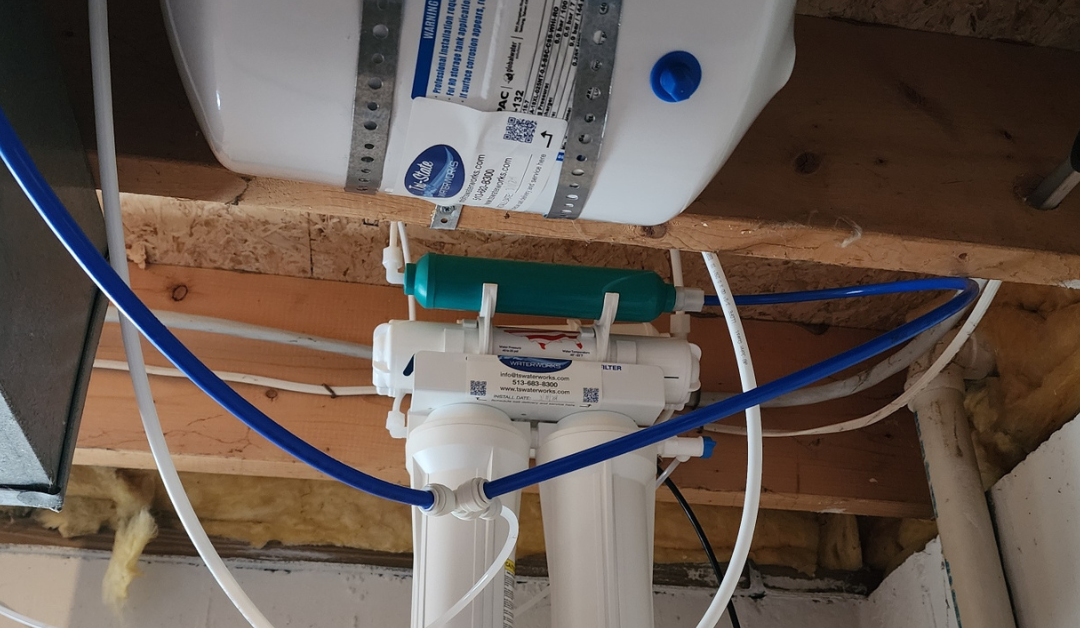Have you ever filled a glass with tap water, only to be met with a cloudy appearance, an unpleasant odor, or a lingering taste of chlorine? If so, you’re not alone. Municipal water treatment systems do a fantastic job of ensuring water safety, but they may not always address all the aesthetic concerns or remove every contaminant. This is where reverse osmosis (RO) systems come in, offering a powerful solution for achieving clean drinking water.
What is Reverse Osmosis?
Imagine water molecules like tiny balls and a semipermeable membrane like a microscopic strainer. Reverse osmosis technology utilizes this very principle. Under pressure, water is forced through this special membrane, allowing pure water molecules to pass through while leaving behind larger contaminants like dissolved minerals, heavy metals, chlorine, and even bacteria and viruses. The result? Exceptionally clean, refreshing drinking water that’s a joy to consume.
Benefits of Reverse Osmosis
Enhanced Taste and Odor
Gone are the days of unpleasant metallic or chlorine tastes. RO systems effectively remove these impurities, transforming your tap water into a cleaner, more pleasant-tasting beverage.
Reduced Contaminants
While municipal water treatment is effective, it may not eliminate all contaminants. Reverse osmosis offers an extra layer of filtration, removing a wide range of unwanted elements from your water, including lead, arsenic, fluoride, and nitrates.
Safer for Sensitive Individuals
For those with compromised immune systems or sensitivities to certain minerals, RO water can offer peace of mind. By removing potential irritants, RO water can be gentler on digestion and potentially improve skin health.
Improved Coffee and Tea
Coffee and tea connoisseurs know that water quality significantly impacts flavor. RO water, free from impurities, allows the true taste of your favorite coffee beans or tea leaves to shine through.
Beyond the Glass: Unexpected Uses for RO Water
The benefits of RO water extend far beyond the beverage glass. Here are a few surprising applications:
Cooking
RO water can elevate your culinary creations. It can enhance the flavor of vegetables, dissolve spices more efficiently, and result in fluffier baked goods.
Food Preparation
Washing fruits and vegetables with RO water can help remove surface contaminants and pesticides.
Baby Formula
For parents seeking extra precaution, RO water provides a reliable source for preparing baby formula.
Appliance Longevity
RO water can be beneficial for appliances like steam irons and coffee makers by preventing mineral buildup that can shorten their lifespan.
Top Considerations When Choosing an RO System
While RO systems offer numerous advantages, it’s important to consider your specific needs and water source. Here are some factors to keep in mind:
System Size and Capacity
Choose a system that can handle your daily water consumption needs.
Contaminant Removal
Identify the specific contaminants you want to remove most effectively.
Maintenance
Regular filter replacements are crucial for optimal performance.
FAQs About Reverse Osmosis Systems
Does Reverse Osmosis Remove All the Minerals from My Water?
Reverse osmosis can remove some beneficial minerals from your water. However, the amount removed is typically minimal and doesn’t pose a health concern for most people. If you’re concerned about mineral content, some RO systems come with a remineralization filter that adds essential minerals back into the water after purification.
Is Reverse Osmosis Water Safe for Babies?
While RO water is generally safe for babies, it’s important to consult with your pediatrician for specific recommendations. In some cases, babies may benefit from the additional minerals present in unfiltered tap water. Additionally, if you’re using formula, always follow the manufacturer’s instructions for mixing with water.
Is Reverse Osmosis Water Wasteful?
RO systems do produce some wastewater during the filtration process. However, many systems have incorporated wastewater minimization features. Additionally, the wastewater can be used for watering plants that don’t require high mineral content in the water.
How Often Do I Need to Replace the Filters in My RO System?
The frequency of filter replacement depends on your water quality and usage. However, most RO system filters need to be replaced every 6 to 12 months to ensure optimal performance and contaminant removal.
A reverse osmosis system is an investment in your health and well-being. It allows you to enjoy cleaner, tastier drinking water, free from a range of potential contaminants. Whether you’re a health-conscious individual, a coffee aficionado, or simply someone who desires a more enjoyable drinking experience, reverse osmosis offers a powerful solution. With a variety of systems available, you can find the perfect fit for your needs and take a vital step toward achieving crystal clear confidence in your daily hydration. If you are interested in water purification services, call our team today.

